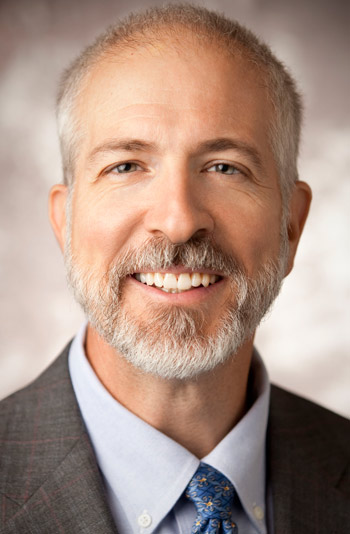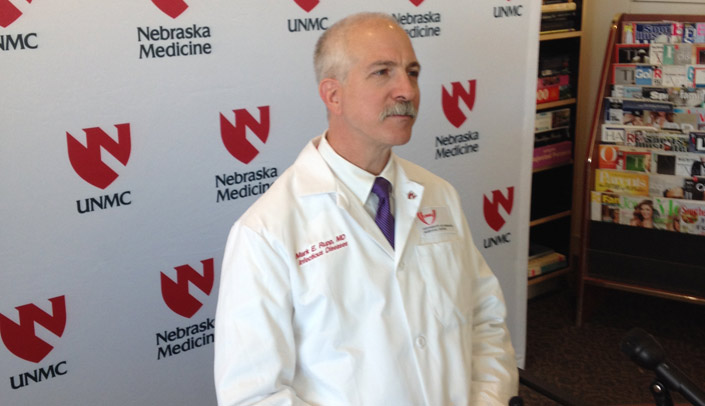 |
Mark Rupp, M.D. |
Patient may be released this week
During the press conference, Dr. Rupp confirmed that Ashoka Mukpo, the second Ebola patient treated at UNMC’s Biocontainment Unit, may be released this week.
Monday, he answered media questions about the 21-day quarantine period that was lifted Sunday for the nearly 50 people who had contact with Thomas Eric Duncan, the Ebola patient who was treated in Texas.
The quarantine ended with none exhibiting signs of Ebola. The health care workers from the hospital who saw Duncan still are under observation, Dr. Rupp said.
“I think this is really a red letter day for folks concerned about Ebola and hopefully will allay some of the fear about Ebola in the community,” Dr. Rupp said.
He said the quarantine lift should be reassuring to those with fears about Ebola which have sometimes turned into hysteria running rampant.
Some of those fears have resulted in school closings, quarantine of a cruise ship passenger and even a Nebraska Medicine Biocontainment Unit employees’ children being shunned at soccer games or parties, he said.
“It’s totally irrational fear,” Dr. Rupp said. “We need to be battling that — getting the education out there and getting people to understand what a rational concern is and that irrational fear is paralyzing us in our daily lives.”
He said there has to be a healthy respect for the virus, which has a high mortality rate.
“What we know about this virus is when people are in the early stages of Ebola, they’re not very contagious, when they’re not having any symptoms, they are at zero risk,” Dr. Rupp said.
“And even when they start to have symptoms, like we saw with Mr. Duncan, he’s not spreading it to the people living in close confines with him. This should be very reassuring that you don’t pick up Ebola from riding a school bus, from taking an airplane ride, from passing someone in a grocery store. It’s only spread through direct contact with blood and body fluids (including vomit, diarrhea, blood), typically in somebody who has advanced disease.”
Dr. Rupp said the medical center has become one of the gold standards of taking care of Ebola patients and has been contacted by the U.S. Centers for Disease Control and Prevention — the lead national organization charged with the nation’s health, safety and security threats — as well as other health care organizations and facilities.
